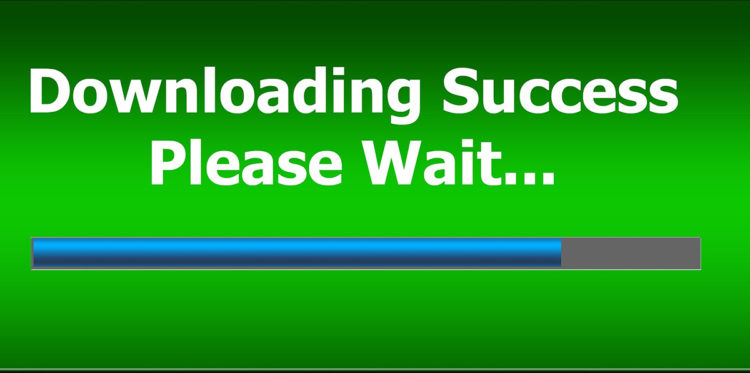Last week marked exactly two years since I graduated from Olin. Time flies! On my way back home from work today, I reflected back a little — on things I have done in the past couple years, my achievements & failures, but more importantly, on how my perspectives have matured since business school. Two years ago, I was pretty much an anxious business school grad armed with a top MBA, raring to hit the marketplace after a two-year break from full-time work, ready yet again to change the world. And then reality hit.
I always thought things like decision making, writing emails, doing great work, etc., came naturally to me. Well, not really. Fast forward two years, and I have “unlearned” some old stuff and learned some new things. Here are a few:
Everybody wants to be the boss, but nobody wants to make decisions

via Unsplash.com
I once asked my mentor (a C-level exec in a Fortune 500 company ) about decision making.
“When you approved that multi-million dollar deal, how did you know its the right one? What if we lost money?”
He said :
“I made some assumptions, and analyzed some scenarios, and all looks good. However, if for whatever reason this deal isn’t profitable, I will have to take the blame. There is risk associated with decision-making, and you have to learn to live with it.”
In short, you don’t know what you don’t know and that’s okay. The key is to make reasonable assumptions, decide and move forward. Your colleagues will really appreciate your ability to provide direction during times of uncertainty. It’s crazy just how many people will avoid making decisions when faced with a risky proposition. Decision making is not everybody’s cup of tea.
If you are a new recruit or a fresh business school grad entering the marketplace, the ability to make a decision based on logic can do a world of good to you. Don’t wait for your boss to provide the next steps and decide things for you. Instead, do your thing, make reasonable assumptions, and let him or her know what your next steps would be. Guess what you just did? You made your boss’s work day easier, and he or she has one less decision to make. Trust me on this one: decision-making doesn’t come easy — even to the most seasoned of practitioners.
Instant gratification is the bane of our existence — and of organizations, too
We all know it. Most of us are addicted to instantly gratifying experiences. We upload photos on the internet and desperately wait for people to like, comment, and talk about it. No matter how pressing the matter at hand may be, a chat notification on our iPhones instantly grabs our attention. We binge watch TV shows because we want to know it all right NOW — and frankly, the ecosystem around us is designed such that we crave instant satiety. Same with companies and organizations.
Most companies are focused on the short term. While they might say big things about innovation being their lifeblood, the reality is something else. Employees in such companies are constantly busy creating short-term road maps to address immediate sales challenges and meet Wall Street expectations. They keep the hard work for later or never.
The reason why there are very few companies as successful as Google and Amazon is simple. While most companies work to pull short-term levers to make the quarter, Google and Amazon are working on these big, hard problems that pretty much have no upside in the short term. They manage investor expectations right from the start and hence, encourage long-term shareholding patterns.
Amazon was not profitable per Wall Street metrics for years, but today it’s one of the most profitable companies on the block and continues to grow. What Amazon did really well was it evaded the instant gratification trap and managed investor expectations. They were thinking hard about where the puck is going to be, as Gretzky once famously said
Again, same applies to managers: If faced with a short term assignment/project, always question the long-term strategic importance of the task. Think it through, and have the hard conversations early. Not many people can do it, but it could really set you apart in an organization.
Business emails are an optimization problem
Wait, is this even a thing? Turns out it is. Over the past two years, this has been one of the biggest takeaways for me personally. If you cannot write a crisp work email, make sure you’ve that figured out ASAP.
For me, I was always pretty verbose with emails. As a grad student in business school, I  remember sending “Thank You” emails to hiring managers that were pretty long form. I look at them today and realize just how much unnecessary stuff I wrote.
remember sending “Thank You” emails to hiring managers that were pretty long form. I look at them today and realize just how much unnecessary stuff I wrote.
While I still take my time and write long emails to my friends and family, I quickly realized that work emails are different. Writing a professional email is an optimization problem. You’ve GOT to convey the key messages, call for action, and then optimize the text for brevity.
People are busy, have shorter attention spans than ever, and are surrounded by too many distractions to read long-form emails. I have tried this out so many times now, and the shorter/optimized emails get way faster responses.
So those are some of the things that I have a really different view on today versus two years ago. Last week, a colleague retired after a career spanning 40 years. The one quote that stayed with me from his retirement speech was:
“It feels as if I blinked, and 40 years passed by.”
Sure enough, my two years after business school passed pretty quick. So starting this year, I have decided I will document and share my experiences, observations every year, so I can re-read it when I retire. Its a long-term assignment that is well worth my time.
If you have insights or comments that you’d like to share please leave a comment! You can reach out to me directly on twitter.
This post originally appeared on the BSchool Talkies blog, run by MBA ’14 alum Abhishek Chakravarty.
Photo credit: Unsplash.com










 remember sending “Thank You” emails to hiring managers that were pretty long form. I look at them today and realize just how much unnecessary stuff I wrote.
remember sending “Thank You” emails to hiring managers that were pretty long form. I look at them today and realize just how much unnecessary stuff I wrote.


